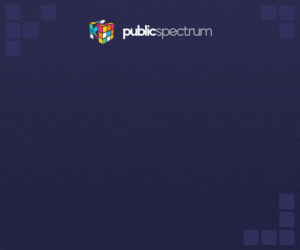NSW 2021-22 Budget to boost state’s recovery and resilience
Share

Twelve months ago, NSW was nearing the deepest point of its first recession in nearly 30 years. Over 270,000 jobs were lost during the initial impact of COVID-19, causing the state government to quickly move in order to regain lost ground.
Critical services such as public health and a world-class digital government platform were invested upon by the government over the period, creating a gold standard in contact tracing and containment of the pandemic.
The state’s economy has improved as a result of these efforts, making it larger than it was prior to the pandemic. NSW’s operating position is improving, making it the only state in Australia to have a triple-A credit rating according to Moody’s.
After successfully weathering through the global pandemic, the NSW Government outlines the 2021-22 State Budget with plans to elevate, innovate and reinvigorate the economy, helping residents move forward and enjoy their lives while safeguarding the health of the community.
“Recovery is only the first step and our government is determined to use this strong start as a springboard to a better future,” NSW Treasurer Dominic Perrottet said.
Economic and Fiscal Overview
The NSW Government’s effective management during the pandemic and the levels of stimulus supports have substantially mitigated the effects of the deepest recession in almost 80 years.
It is predicted that the state’s unemployment rate will decline back to its pre-COVID level of around 4½ per cent in 2024-25. Meanwhile, the Gross State Product per person, a key indicator of average living standards for the population, will surpass pre-COVID trends by 2023-24.
The growth in the NSW Generations Fund (NGF) and an ongoing asset recycling program will push the net debt back down to 7 per cent of GSP over the medium term. Plans to grow the NGF to over $90.0 billion by 2030-31 will help boost the NGF’s debt offset capacity and foster a more resilient State balance sheet.
NSW’s economy is supported by targeted stimulus into 2021-22 with a projected $6.0 billion to be spent next year for infrastructure, capital maintenance, business, economy, education and skills programs and social and community support.
While the reopening of borders is assumed to be delayed until mid-2022, reducing economic demand and contributing to labour shortages in some industries, the NSW Government will use the budget to focus on reforming and shifting the dial on the drivers of long-term economic growth.
Accelerating NSW’s recovery
The NSW Government has spent over $4.0 billion on improving its healthcare system since March 2020 and will continue to do so in the 2021-22 State Budget.
About $3.1 billion will be invested for NSW’s health infrastructure, continuing and commencing over 110 health capital projects across metropolitan hospitals, regional hospitals and other health facilities.
Digital health initiatives will receive $500.0 million in funding. Health capital works across regional NSW will also be given a 900.0 million investment. Mental health and other health services will also be prioritised in the Budget.
The State Budget also provides an infrastructure program that will help build a better state. This program has a record pipeline investment of $108.5 billion to ensure the delivery of infrastructure projects for the next four years.
The NSW Government also has plans to improve the state’s living and working conditions, investing in initiatives that will revitalise the CBD, create local jobs and drive economic activity.
Investing in families and their futures
The strength of the state’s finances has allowed the NSW Government to provide significant support to individuals and families. Over $6.0 billion in new and existing rebates, concessions and cost of living measures will be available to households to help reduce the impact of everyday living costs in 2021-22.
This investment was made to encourage NSW citizens to become more involved in activities that support development and participation. The Government is also bolstering its existing support programs with a range of ongoing, new and expanded measures.
By continuing existing measures such as Active Kids, Creative Kids, Smart and Skilled, Student Transport Scheme and Toll Relief and other tax relief measures, NSW citizens can save up to thousands of dollars each year and contribute to the delivery of social outcomes.
The NSW Government is keeping the Opal fare increase in line with inflation while ensuring off-peak discounts and weekend caps will remain in place to benefit customers.
Under the new budget, the NSW Government plans to enhance the community for healthier living, support small to medium businesses and empower the First Nations communities with ongoing and new measures.
The budget will also see to the investment towards critical support services for the most vulnerable and disadvantaged to ensure appropriate care and services are available.
Transforming NSW
As was shown in the 2021-22 NSW Intergenerational Report, a growing economy will allow the state to maintain high-quality services, build resilience and create opportunities for future generations. Building a stronger economy will require reforms in order to lift productivity growth.
In the NSW Productivity Commissioner’s White Paper 2021, Rebooting the economy, four foundations for rebooting productivity growth were considered: talent, investment and innovation, housing, and infrastructure and natural resources.
The budget presents a comprehensive package of incentives that will support the take-up of electric vehicles (EVs) in NSW and establish the foundations for a more efficient and sustainable revenue base to support road funding.
A 2.5 cents per kilometre road user charge for electric vehicles will be introduced to provide a sustainable and efficient source of road funding into the future.
The budget also prioritises the delivery of the Electricity Infrastructure Roadmap, the quality and safety of care for patients by implementing a Single Digital Patient Record, the transition of all buses to zero-emission, the lowering of the cost of occupational license holders, the implementation of the package from the NSW Productivity Commission Infrastructure Contributions Review and the investment for student outcomes and long-term productivity improvements.
The NSW Government, through the budget, will cut down red tape and fast-track major development projects to help keep people in jobs, the construction industry moving and create business hubs that encourage innovation.
Government services will also be improved under the budget as new initiatives and technologies are invested upon.
The Critical Communications Enhancement Program, which will expand and enhance the Public Safety Network and ensure radio coverage across the State for first responders, is given $719.0 million under the budget for its completion.
The Digital Restart Fund will receive an additional $500.0 million to help drive investments in digital technologies across the state government. Eight extra Local Court magistrates will be appointed and the Data Analytics Centre’s services will be continued under the budget.
Around $19.0 million will be provided as an asset refresh to video conferencing and computer facilities in TAFE campuses across NSW.
The budget will also target support for communities that have been hit hard by recent challenges. Provided funding will help businesses and communities recover, rebuilt and reduce the risk for the future.
Because of the pandemic, digital advancement and environmental sustainability, the decade ahead for NSW is expected to not look like the last. With the 2021-22 Budget, the NSW Government intends to modernise and diversify the economy to ensure prosperity for future generations.
Eliza is a content producer and editor at Public Spectrum. She is an experienced writer on topics related to the government and to the public, as well as stories that uplift and improve the community.






















